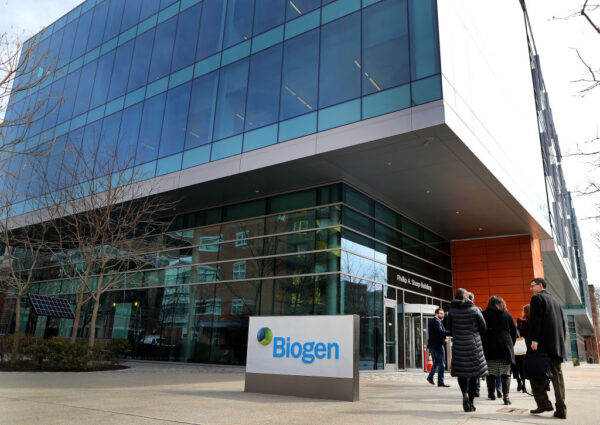
Updated Phase II data on a drug used to treat spinal muscular atrophy show strong efficacy among infants with the disease – though an analyst wrote that competition from gene therapy will likely complicate the situation for the manufacturer.
Cambridge, Massachusetts-based Biogen said Monday that results from its 25-patient NURTURE study of Spinraza (nusinersen) in pre-symptomatic infants showed that after three years of follow-up, all those treated were alive without the need for ventilation and able to sit without support, and 88 percent were able to walk independently. The data are being presented at conferences in Anaheim, California, and Oslo, respectively Cure SMA’s annual conference and the European Academy of Neurology.
Following the news, shares of Biogen opened up more than 1 percent on the Nasdaq Monday.
“These study results demonstrate the durable impact of pre-symptomatic, proactive treatment on transforming the natural course of this disease,” said Dr. Darryl De Vivo of Columbia University Irving Medical Center, in a statement. “We are seeing an extensive number of patients continually meeting child motor development milestones and making unprecedented gains in a previously hopeless and often fatal condition.”
While Spinraza is a widely used drug for treating SMA, the market become more competitive recently, with the Food and Drug Administration’s May 24 approval of Novartis’ gene therapy, Zolgensma (onasemnogene abeparvovec-xioi). Nevertheless, how the situation will play out over time for Biogen remains unclear, BTIG analyst Thomas Shrader wrote Monday in a note to investors, stating that the drug’s strength “raises the stakes” for the company.
Currently, Shrader wrote, the NURTURE data are better than anything his team has seen for Zolgensma, though that is a reflection of earlier dosing – before six weeks of age, compared with before six months in another Spinraza study. Moreover, he wrote, conversations with payers suggest they do not expect to pay for both gene therapy and lifetime treatment with Spinraza without data to support the combination, and Zolgensma’s launch is expected to weigh heavily on Biogen’s stock. The expectation is that Spinraza revenue would be relatively flat over the next three years, as it faces a “modest competitive threat” that build slowly.
Global sales of Spinraza were $518.5 million during the first quarter of 2019, compared with $363.9 million during the same period last year, according to Biogen. While Spinraza has a broad label for adults and children with SMA, Zolgensma is only approved for children younger than 2 years of age.
Photo: John Tlumacki/The Boston Globe, Getty Images















